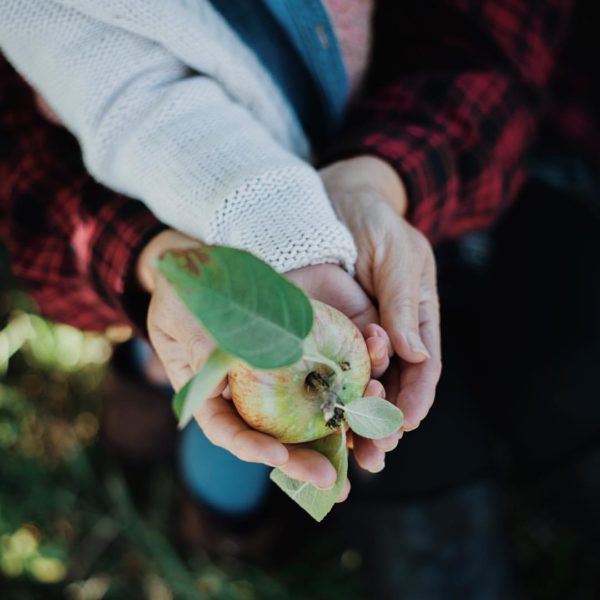During the month of November, I always see an emphasis on gratitude and thankfulness. It gets me thinking, what can we as parents do to help our children be more grateful?
 In our family, we’ve started to take a moment before dinner to write down what we are thankful for; it goes into a jar and at the end of the month we plan to go through what we have written. Our days are filled with running to and from activities that sometimes we forget to just be grateful for the opportunities we have as a family.
In our family, we’ve started to take a moment before dinner to write down what we are thankful for; it goes into a jar and at the end of the month we plan to go through what we have written. Our days are filled with running to and from activities that sometimes we forget to just be grateful for the opportunities we have as a family.
The only direction I give is to write down at least one thing you are thankful for – even if it’s just thank goodness mom didn’t make that quinoa stuff for us tonight. Oftentimes it seems way too easy to think about the one bad thing that happened that day – it’s like we get fixated on that singular moment. Taking time to reflect on the good things that happened that day helps us all switch our mindset.
I also am excited for us to go back and read through what we wrote – reliving that moment of happiness or listening to the kids giggle because they wrote something they found really funny. Like, I’m glad my sister didn’t fart at the dinner table. (Side bar – aren’t we all glad when that doesn’t happen?).
Being grateful for the things and experiences we have, instead of focusing on what went wrong or what we don’t have.
I have invested a lot of time on taking better care of myself these last few months, which has included reading a number of great personal development books and discovering motivational podcasts. There is a theme that occurs throughout – focus on the good, the positive in your life, and spend more time cultivating those feelings.
It almost seems too easy right? Think positive and be positive. But, here is what I’ve noticed in the short amount of time I’ve been more aware of focusing on gratitude, even when things haven’t gone as I expected my reaction isn’t as negative as it had been in the past. I catch myself feeling, saying, thinking those negative thoughts, and immediately remind myself of the positive things in my life.
And, it’s rubbing off on my kids too.
Now, when I ask how school is, I seldom get the negative things, but they talk about the good things that happened or a story from the day that made them laugh. When I do get the negative things, it doesn’t dominate the entire conversation.
 Small steps towards being more grateful.
Small steps towards being more grateful.
There are other things we as parents can do to teach our kids to be more grateful including:
- When shopping for the holidays, have your child pick out a gift to donate to another child. Even on years when I wasn’t sure I would be able to give my kids “the best Christmas yet”, we still picked out a tag on the giving tree at school. Because, I want my kids to know that there are people who are less fortunate than we are.
- Donate your used clothing and household items to a local non-profit and bring your kids with. (Side note, please check with your favorite non-profit to see what type of donations they need, some are not able to take all of the things you’d like to donate).
- Say no – I know we live in an immediate gratification world, where kids expect to get everything now. It’s ok for them to hear no and not always get what they want. They can learn to appreciate it when you do say yes to making that Starbucks coffee stop.
- LIVE IT!! You are their biggest role model. You want them to learn to be grateful, you need to be grateful.
Dr. Kathleen Berchelman, a pediatrician at Mercy Children’s Hospital and mom of six, has some tips for teaching children gratitude:
- Talk about the best parts of your day – find some time during the day to talk about what you’re thankful for – maybe during dinner, at bedtime, or while you are in the car together.
- Focus on the positive all day – for example when you hear “I’m thirsty” coach your child to say, “Mommy, may I please have a drink?” Remind them that attitude is a choice.
- Say thank you – teach young children to say “Thank You” as part of a full sentence. For example, “Thank you dad for making dinner.”
- Lead by example – we can’t ask our children to be grateful if we aren’t. Come home and talk about the happy parts of your day and make sure to say “Thank You” too.
- Make time for chores – Find age-appropriate chores for your children, even if it’s just 5-10 minutes per day. Without chores, children can’t understand what it takes to run a household.
Our children learn what we teach them – let’s teach them to be kind to others and grateful for their opportunities.
I am looking forward to my favorite Thanksgiving tradition of going around the table and sharing what we are grateful for. It gives us a chance to reflect on the year and be grateful for being together with family and friends.










